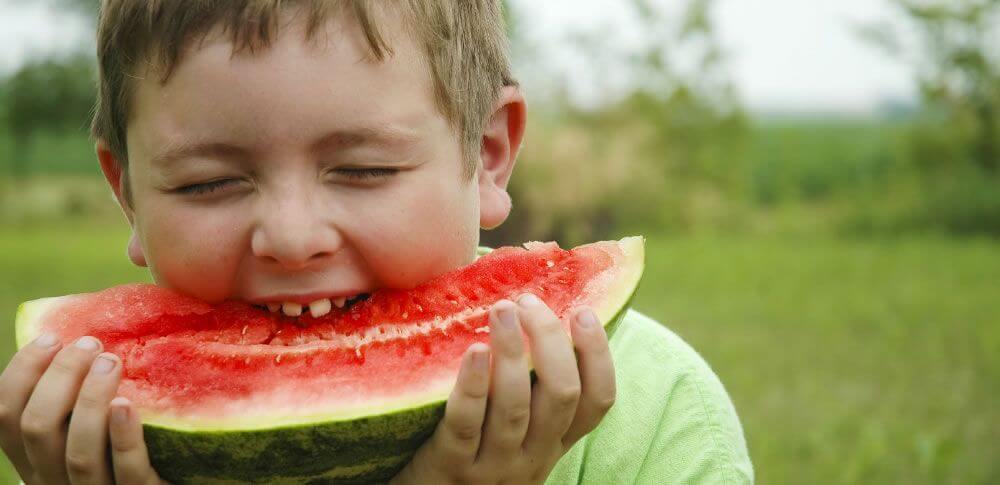Nutrition and Children in Child Care
Published on Monday, 05 December 2016
Last updated on Friday, 04 January 2019

Generally speaking, children who attend child care centres where the program specifically offers meals will eat food prepared by the centre. Many centres hire cooks, others use staff and parents to create nutritious meals that meet both government guidelines and the needs of the individual children attending. Most children in child care will receive lunch and two snacks.
Seeing as children in child care throughout the week receive a significant amount of their nourishment from sources outside the home, the nutrition knowledge and the attitudes of the staff is of great importance.
When researching a centre for your child, some questions that may be worth asking include:
- What is the level of nutrition training of staff involved in meal planning?
- How recent is the training (nutrition is a fast moving science)?
- Does the centre have a nutrition policy?
- Can you view some sample menus?
- How often are the menus reviewed and changed?
- What size are the portions of meals served?
- What are the mealtime routines?
- What opportunities do parents have in the say of what goes into meals?
- Are children given any other snacks or drinks over the day?
- What hygiene policy does the centre have in regards to food safety?
- Does the centre have a policy you can read regarding food allergies and intolerances?
- What are the core guidelines the centre uses in meal planning, the Dietary Guidelines, CSIRO, World Health Organisation?
Fluids
Always send your child off for the day with a full drink bottle and check the level when they get home. Their thirst reflexes are still developing, so they may not know they are thirsty, while others are just too busy to stop for a drink.
Water is best, while fruit-based drinks can be added to a healthy diet (in appropriate amounts), they can fill little tummies, displace food and reduce appetite not to mention affect teeth – they are often high in sugar.
Changes in eating patterns
Of course, some preschoolers don't always agree with our views on dietary habits, preferring to get most of their nutritional needs in just a couple of meals and pick the rest of the day. Some even have a main meal at lunch and barely touch their dinner. These habits are all quite normal and ultimately it is a case of ‘you can lead a horse to water…' Never force a child to eat. Always offer healthy foods and allow your little one to choose from these selections. Be patient, persistent and consistent.
Related Articles

Keeping Your Child Healthy in Child Care
Child care services and illness go hand-in-hand, this article offers pointers to help parents keep their child healthy and prevent the spread of germs.

Dealing With Severe Allergies (Anaphylaxis) in Child Care
Child care for kids with anaphylaxis: How to keep your anaphylactic child safe in child care and how early childhood providers deal with severe allergies.

Stress Reduction Strategies for Children in Care
Stress reduction and relaxation strategies for families and educators to try when children seem to be overwhelmed and or stressed in a child care setting.
